Textual Mentor: A Comprehensive Guide for Doctoral Students at Early Stages of Research Project

Embarking on a doctoral research project is a formidable undertaking that requires a significant investment of time, effort, and intellectual rigor. For doctoral students at the early stages of their research journey, the guidance of an experienced mentor can be invaluable in navigating the complexities of the research process, developing essential skills, and achieving academic success.
4 out of 5
| Language | : | English |
| File size | : | 575 KB |
| Text-to-Speech | : | Enabled |
| Screen Reader | : | Supported |
| Enhanced typesetting | : | Enabled |
| Word Wise | : | Enabled |
| Print length | : | 177 pages |
What is a Textual Mentor?
A textual mentor is a senior scholar or researcher who provides guidance and support to doctoral students through written communication, primarily through email, online messaging, or document sharing. This type of mentorship differs from traditional face-to-face interactions and offers unique advantages for students who may be geographically dispersed, have limited time for in-person meetings, or prefer asynchronous communication.
Responsibilities of a Textual Mentor
The responsibilities of a textual mentor typically include:
- Providing feedback on research proposals, manuscripts, and other written work
- Offering guidance on research design, methodology, and analysis
- Suggesting relevant literature and resources
- Answering questions and addressing concerns related to the research project
- Providing encouragement and support throughout the research process
Benefits of Seeking Guidance from a Textual Mentor
There are numerous benefits to seeking guidance from a textual mentor, including:
- Enhanced Research Quality: Mentors can provide valuable feedback on students' written work, helping them improve the clarity, rigor, and impact of their research.
- Efficient Progress: Mentors can guide students through the research process, helping them avoid common pitfalls and accelerate their progress.
- Skill Development: Mentors can help students develop essential research skills, such as critical thinking, problem-solving, and effective communication.
- Increased Confidence: Regular communication with a mentor can boost students' confidence and provide them with a sense of support and reassurance.
- Reduced Isolation: Textual mentors can help students overcome feelings of isolation and connect with a network of scholars in their field.
Identifying a Textual Mentor
Finding a suitable textual mentor can be a daunting task. Here are some strategies for identifying potential mentors:
- Attend conferences and workshops: Engage with researchers in your field and inquire about their willingness to serve as a mentor.
- Contact potential mentors directly: Politely reach out to scholars whose work aligns with your research interests and inquire about their availability for mentorship.
- Utilize university resources: Check with your department or graduate school to see if they offer mentorship programs or have a database of potential mentors.
- Ask for recommendations: Seek advice from your faculty advisor, colleagues, or fellow students who may have had positive mentorship experiences.
Establishing Effective Communication
Once you have identified a potential mentor, it is crucial to establish clear and effective communication. Here are some tips:
- Set expectations: Clearly communicate your expectations for the mentorship relationship, including the frequency and format of communication.
- Be respectful: Always approach your mentor with respect and acknowledge their time and expertise.
- Be organized: Prepare your questions and documents carefully before contacting your mentor.
- Use clear and concise language: Write or speak in a manner that is easy for your mentor to understand.
- Be patient: Mentors may have busy schedules, so be patient and allow them ample time to respond.
Setting Clear Expectations
It is essential to set clear expectations for the mentor-mentee relationship at the outset. This includes:
- Scope of mentorship: Define the specific areas in which you seek guidance from your mentor.
- Communication frequency: Establish a regular cadence for communication, such as weekly or bi-weekly check-ins.
- Turnaround time: Agree on a reasonable turnaround time for your mentor to provide feedback or responses.
- Confidentiality: Discuss and agree on the level of confidentiality regarding your research and mentorship discussions.
Navigating Challenges
Even in the most positive mentorship relationships, challenges can arise. Here are some strategies for navigating potential difficulties:
- Communication breakdowns: If communication becomes infrequent or ineffective, address the issue with your mentor in a respectful and open manner.
- Conflicting expectations: If you feel that your expectations are not being met, communicate this to your mentor and work together to find a mutually agreeable solution.
- Lack of support: If you are not receiving the support or guidance you need, consider seeking additional mentorship or resources.
- Personal issues: If personal issues are impacting your mentorship relationship, be honest and transparent with your mentor and explore ways to address them.
Importance of Seeking Feedback
Regular feedback is essential for your growth and development as a researcher. Here are some tips for seeking feedback effectively:
- Be specific: Clearly articulate the areas in which you are seeking feedback.
- Be open-minded: Feedback can be challenging to receive, but approach it with an open mind and a willingness to improve.
- Be respectful: Thank your mentor for their feedback and acknowledge their expertise.
- Follow up: After receiving feedback, take time to reflect and follow up with your mentor to discuss any questions or concerns.
Leveraging Resources
In addition to your textual mentor, there are many other resources available to support your research. These include:
- University resources: Utilize services such as writing centers, libraries, and research support offices.
- Professional organizations: Join professional organizations in your field to connect with other researchers and access resources.
- Online communities: Participate in online forums and discussion groups to engage with fellow doctoral students and researchers.
- Academic journals: Read academic journals and attend conferences to stay abreast of the latest research in your field.
Maintaining a Positive and Productive Mentorship Experience
Maintaining a positive and productive mentorship experience requires effort from both the mentor and the mentee. Here are some tips:
- Be proactive: Reach out to your mentor regularly and take initiative in scheduling meetings or asking questions.
- Be respectful: Always treat your mentor with respect and acknowledge their time and expertise.
- Be prepared: Come to meetings prepared with questions, documents, or ideas to discuss.
- Be open to feedback: Approach feedback with an open mind and a willingness to improve.
- Be appreciative: Express your gratitude to your mentor for their guidance and support.
A textual mentor can be an invaluable resource for doctoral students at the early stages of their research project. By identifying a suitable mentor, establishing effective communication, setting clear expectations, and navigating challenges, doctoral students can harness the power of mentorship to enhance their research quality, accelerate their progress, and achieve academic success. Moreover, by seeking feedback, leveraging resources, and maintaining a positive and productive relationship, doctoral students can foster a mutually beneficial mentorship experience that will support their growth as researchers and scholars.
4 out of 5
| Language | : | English |
| File size | : | 575 KB |
| Text-to-Speech | : | Enabled |
| Screen Reader | : | Supported |
| Enhanced typesetting | : | Enabled |
| Word Wise | : | Enabled |
| Print length | : | 177 pages |
Do you want to contribute by writing guest posts on this blog?
Please contact us and send us a resume of previous articles that you have written.
 Fiction
Fiction Non Fiction
Non Fiction Romance
Romance Mystery
Mystery Thriller
Thriller SciFi
SciFi Fantasy
Fantasy Horror
Horror Biography
Biography Selfhelp
Selfhelp Business
Business History
History Classics
Classics Poetry
Poetry Childrens
Childrens Young Adult
Young Adult Educational
Educational Cooking
Cooking Travel
Travel Lifestyle
Lifestyle Spirituality
Spirituality Health
Health Fitness
Fitness Technology
Technology Science
Science Arts
Arts Crafts
Crafts DIY
DIY Gardening
Gardening Petcare
Petcare Maggie Ryan
Maggie Ryan Gladstone Califf
Gladstone Califf Jeffro Johnson
Jeffro Johnson Sarah Digregorio
Sarah Digregorio Julie Lythcott Haims
Julie Lythcott Haims Harvey Motulsky
Harvey Motulsky Bridgit Danner Lac
Bridgit Danner Lac Nelson L Schuman
Nelson L Schuman Andrew Heywood
Andrew Heywood William E Hearn
William E Hearn Patrick Felicia
Patrick Felicia Marsha Walker
Marsha Walker Sean B Carroll
Sean B Carroll Rudy Rucker
Rudy Rucker Brian L Silver
Brian L Silver John Lofty Wiseman
John Lofty Wiseman Ben Foss
Ben Foss Caroline Finnerty
Caroline Finnerty Dawne Archer
Dawne Archer Chaim Potok
Chaim Potok John Eberhart
John Eberhart H A Lorentz
H A Lorentz Dr John Hockey
Dr John Hockey Jerry Z Muller
Jerry Z Muller Rhonda V Magee
Rhonda V Magee Neil Harman
Neil Harman Henry Fielding
Henry Fielding Helene Henderson
Helene Henderson Michael J Mauboussin
Michael J Mauboussin Tiffany Harelik
Tiffany Harelik Sarah Edmondson
Sarah Edmondson Teresa M Twomey
Teresa M Twomey T H Lain
T H Lain Robert M Schoch
Robert M Schoch Gene Stone
Gene Stone Stephen Prata
Stephen Prata Jim Flynn
Jim Flynn Rami Ungar
Rami Ungar Marissa Meyer
Marissa Meyer Dora Kurimay
Dora Kurimay Emilie Bailey
Emilie Bailey Sabrina Chevannes
Sabrina Chevannes Melody Groves
Melody Groves James R Hansen
James R Hansen Glenn Berkenkamp
Glenn Berkenkamp Sebastian Deterding
Sebastian Deterding Joseph Bronson
Joseph Bronson Ilene And Gary Modica
Ilene And Gary Modica Mary H K Choi
Mary H K Choi Winifred Gallagher
Winifred Gallagher Nicholas D Souza
Nicholas D Souza Madeleine L Engle
Madeleine L Engle Beverly Asante Puschmann
Beverly Asante Puschmann Elianor M A
Elianor M A Brianne Donaldson
Brianne Donaldson Dan Orr
Dan Orr Jennie Erin Smith
Jennie Erin Smith Brian Grossenbacher
Brian Grossenbacher Chris Dowhan
Chris Dowhan Donna Tartt
Donna Tartt Justine Bold
Justine Bold Bill Dance
Bill Dance Andrew Robinson
Andrew Robinson Sara T Gibbs
Sara T Gibbs Rachel Pepper
Rachel Pepper Lawrence Dawson
Lawrence Dawson Nicholas Harvey
Nicholas Harvey Mary Sheedy Kurcinka
Mary Sheedy Kurcinka Daniel W Cunningham
Daniel W Cunningham Reid Sheftall M D
Reid Sheftall M D Jason William
Jason William Hope Jahren
Hope Jahren Marcus Tomlinson
Marcus Tomlinson Connie Goldsmith
Connie Goldsmith Sian Beilock
Sian Beilock Jenny Randles
Jenny Randles Donn F Draeger
Donn F Draeger Nick Jaffe
Nick Jaffe Kevin Thomas
Kevin Thomas Eli Maor
Eli Maor Bryan Mellonie
Bryan Mellonie Zita Grant
Zita Grant Kay Pranis
Kay Pranis Andy Burnham
Andy Burnham J P Mcevoy
J P Mcevoy Jill Squyres Groubert Phd
Jill Squyres Groubert Phd Dennis J Stanford
Dennis J Stanford Adam Minter
Adam Minter James P Sethna
James P Sethna Claire Ahn
Claire Ahn Monty Roberts
Monty Roberts Claiborne Young
Claiborne Young Christopher O Shaughnessy
Christopher O Shaughnessy Robert Parris Moses
Robert Parris Moses David A French
David A French Liz Prince
Liz Prince William Mark Huey
William Mark Huey Kent Nerburn
Kent Nerburn Rob Eastaway
Rob Eastaway Elizabeth Walter
Elizabeth Walter Carson Mccullers
Carson Mccullers Andrew J Wakefield
Andrew J Wakefield Jay Arthur
Jay Arthur Uma Dinsmore Tuli
Uma Dinsmore Tuli Vanessa A P
Vanessa A P Shari Mezrah
Shari Mezrah Andrew Peterson
Andrew Peterson Howard Thurman
Howard Thurman Janis Abrahms Spring
Janis Abrahms Spring Jonathan Bennett
Jonathan Bennett Cary Hanson
Cary Hanson Michele Amitrani
Michele Amitrani Leslie Klenke
Leslie Klenke Elijah N Daniel
Elijah N Daniel Davida Hartman
Davida Hartman Jared Benson
Jared Benson Andrew X Pham
Andrew X Pham Carolyn Coker Ross
Carolyn Coker Ross Nigel Calder
Nigel Calder Jessie Cal
Jessie Cal Nancy Frey
Nancy Frey Andrius Jac
Andrius Jac Peter Compton
Peter Compton Charlie Jones
Charlie Jones Paul Seabright
Paul Seabright Laird Hamilton
Laird Hamilton Christian Heath
Christian Heath Justin Fox Burks
Justin Fox Burks Ashley Schmitt
Ashley Schmitt Kirk W Johnson
Kirk W Johnson Christopher Dunn
Christopher Dunn Xavier P Hunter
Xavier P Hunter David Carrasco
David Carrasco Shannon Jensen
Shannon Jensen Jennifer M Rosner
Jennifer M Rosner The Car Crash Detective
The Car Crash Detective John Macgregor
John Macgregor Fourth Edition Kindle Edition
Fourth Edition Kindle Edition Richard Bullivant
Richard Bullivant Sadhguru
Sadhguru Jerry M Gutlon
Jerry M Gutlon Stan Tekiela
Stan Tekiela Joya Goffney
Joya Goffney Helene St James
Helene St James Slow Sprint
Slow Sprint Stacey Lee
Stacey Lee David Stipp
David Stipp Richard G Klein
Richard G Klein Diane R Gehart
Diane R Gehart John Sefton
John Sefton Jakob Schwichtenberg
Jakob Schwichtenberg Tim Huffman
Tim Huffman Rosita Boland
Rosita Boland Tami Fox
Tami Fox Judith A Cohen
Judith A Cohen Andrew Lawler
Andrew Lawler Seth J Gillihan Phd
Seth J Gillihan Phd Christine Pearson Casanave
Christine Pearson Casanave Jack David Eller
Jack David Eller Jen Benson
Jen Benson Rachel E Spector
Rachel E Spector P Anastasia
P Anastasia Dawn Isaac
Dawn Isaac Sam Fels
Sam Fels Sue Fleming
Sue Fleming M J Abadie
M J Abadie Judy Ford
Judy Ford Dustin Howe
Dustin Howe Vibrant Publishers
Vibrant Publishers Cathy Kelly
Cathy Kelly Andrew Hempstead
Andrew Hempstead Ruth Haley Barton
Ruth Haley Barton Garth Nix
Garth Nix Master Wong
Master Wong W Michael Kelley
W Michael Kelley Monica Clyde
Monica Clyde Andrew Moore
Andrew Moore Patrick Barrett
Patrick Barrett Heidi Dais
Heidi Dais Alexander Bennett
Alexander Bennett Andrew Jamieson
Andrew Jamieson Omar D Lewis Sr
Omar D Lewis Sr Aaron Edkins
Aaron Edkins Timothy Gordon
Timothy Gordon Chelsea Johnson
Chelsea Johnson Chris Mcmullen
Chris Mcmullen John Helyar
John Helyar Tom Chesshyre
Tom Chesshyre V S Ramachandran
V S Ramachandran Carolyn S Schroeder
Carolyn S Schroeder Andrew Stellman
Andrew Stellman Richard Twiss
Richard Twiss Texes Exam Secrets Test Prep Team
Texes Exam Secrets Test Prep Team Andrew Thompson
Andrew Thompson John Atherton
John Atherton Andrew Warnes
Andrew Warnes Sean Bloomfield
Sean Bloomfield Kevin Anderson
Kevin Anderson Mark Hyman
Mark Hyman Marianne Ryan
Marianne Ryan Susana Wald
Susana Wald Becky Albertalli
Becky Albertalli Michael J Thompson
Michael J Thompson Ron Hackett
Ron Hackett Mona Liza Santos
Mona Liza Santos Luca Brambilla
Luca Brambilla Michaela Deprince
Michaela Deprince N S Wikarski
N S Wikarski Teresa Palmer
Teresa Palmer J Richard Hackman
J Richard Hackman Kari Kampakis
Kari Kampakis Mark Needham
Mark Needham Howling Moon Books
Howling Moon Books Vivien Newman
Vivien Newman Pseudo Nym
Pseudo Nym Rory Stewart
Rory Stewart Gabriel Weinberg
Gabriel Weinberg Lauren James
Lauren James Jennifer Lw Fink Rn Bsn
Jennifer Lw Fink Rn Bsn Andrew Lang
Andrew Lang Robert Kurson
Robert Kurson Steve Lage
Steve Lage Tom Rosenbauer
Tom Rosenbauer Jessica Speer
Jessica Speer Claire Phillips
Claire Phillips Andrew Shaw
Andrew Shaw Suzanne Van Atten
Suzanne Van Atten Michelle Madow
Michelle Madow Gordon Wright
Gordon Wright Joey Rive
Joey Rive Geraldine Woods
Geraldine Woods Bruce H Lipton
Bruce H Lipton Jordan Ellenberg
Jordan Ellenberg Briana Wiles
Briana Wiles Stephen Howe
Stephen Howe Mark Vella
Mark Vella Atul K Mehra
Atul K Mehra Eric H Cline
Eric H Cline Rosalind Miles
Rosalind Miles John R Anderson
John R Anderson S G Taylor
S G Taylor Anthony Bishop Lmft
Anthony Bishop Lmft Stephen Cole
Stephen Cole Timothy Ferris
Timothy Ferris Helen O Neil
Helen O Neil Aristeidis Bampakos
Aristeidis Bampakos Gordon W Green
Gordon W Green Stanley L Jaki
Stanley L Jaki Guy Windsor
Guy Windsor Carl Allchin
Carl Allchin Cassandra Erkens
Cassandra Erkens Benedict Goleman
Benedict Goleman Michael Epperson
Michael Epperson Rupert Sheldrake
Rupert Sheldrake Lisa Cron
Lisa Cron Lisa Roberts
Lisa Roberts Ira J Chasnoff
Ira J Chasnoff Fatime Losonci
Fatime Losonci Michael F Roizen
Michael F Roizen Christine Moore
Christine Moore Michael Barela
Michael Barela Carl Petersen
Carl Petersen Emily Kerr
Emily Kerr Kinley Macgregor
Kinley Macgregor Andrew Hartman
Andrew Hartman David Sowell
David Sowell Carla Hannaford
Carla Hannaford Dr Sarah Mitchell
Dr Sarah Mitchell Dan Anderson
Dan Anderson Sally Cook
Sally Cook Chris Rodell
Chris Rodell Luna Fox
Luna Fox Michael Polanyi
Michael Polanyi Brock Lesnar
Brock Lesnar Ruta Sepetys
Ruta Sepetys Erin Macpherson
Erin Macpherson Palle Yourgrau
Palle Yourgrau Nick Estes
Nick Estes Gina M Biegel
Gina M Biegel George W Hart
George W Hart L Kathleen Mahan
L Kathleen Mahan Gila Leiter
Gila Leiter Jonathan Scott
Jonathan Scott Mark Mcclusky
Mark Mcclusky Sharon A Hansen
Sharon A Hansen Jay Sokolovsky
Jay Sokolovsky Eddy Starr Ancinas
Eddy Starr Ancinas Jason R Rich
Jason R Rich Andy Crouch
Andy Crouch Gordon Churchill
Gordon Churchill Walter Martin
Walter Martin Thomas Clarkson
Thomas Clarkson Peter D Jeans
Peter D Jeans Portia Macintosh
Portia Macintosh Ricky Roberts Iii
Ricky Roberts Iii Natalie Babbitt
Natalie Babbitt Sarah Castille
Sarah Castille Edward C Klatt
Edward C Klatt Nicholas J Higham
Nicholas J Higham Debbie Felkins Tamez
Debbie Felkins Tamez Rick Scoppe
Rick Scoppe Stephanie V W Lucianovic
Stephanie V W Lucianovic Laird Scranton
Laird Scranton Kuldeep Singh
Kuldeep Singh Daniel D Fox
Daniel D Fox Justine Bateman
Justine Bateman Linda Whitenton
Linda Whitenton Tom Holland
Tom Holland Zhongxian Wu
Zhongxian Wu Marcos Romero
Marcos Romero Lisa Bevere
Lisa Bevere Peggy Orenstein
Peggy Orenstein Richelle Mead
Richelle Mead Clinton Anderson
Clinton Anderson Julia Cameron
Julia Cameron Molly E Lee
Molly E Lee Carl Hart
Carl Hart Wendy Bryden
Wendy Bryden Tina H Boogren
Tina H Boogren Marian Stamp Dawkins
Marian Stamp Dawkins William J Broad
William J Broad Kathleen Huggins
Kathleen Huggins Rachel Lynn Solomon
Rachel Lynn Solomon W Somerset Maugham
W Somerset Maugham Carla Killough Mcclafferty
Carla Killough Mcclafferty Eva Longoria
Eva Longoria Prosanta Chakrabarty
Prosanta Chakrabarty Rainer Martens
Rainer Martens Sam Maggs
Sam Maggs Andrew Hudson
Andrew Hudson Andrew Zerling
Andrew Zerling Piero Ferrucci
Piero Ferrucci Ronald T Kneusel
Ronald T Kneusel Mikael Krief
Mikael Krief Jon Gertner
Jon Gertner Larry Jacobson
Larry Jacobson Xan Barksdale
Xan Barksdale Rolf Potts
Rolf Potts John Mcphee
John Mcphee Diane Tober
Diane Tober James Berry
James Berry Ed Rosenthal
Ed Rosenthal Tanya Crossman
Tanya Crossman Guns Ammo
Guns Ammo Melisenda Edwards
Melisenda Edwards Jonathan C Slaght
Jonathan C Slaght J D Lenzen
J D Lenzen Rosicrucian Order Amorc
Rosicrucian Order Amorc Marie Sherlock
Marie Sherlock Bruno David
Bruno David Daniel Tammet
Daniel Tammet Christopher Hodapp
Christopher Hodapp Christine Carter
Christine Carter Betty Smith
Betty Smith Hugh P Mckenna
Hugh P Mckenna George Washington Cable
George Washington Cable Linda Goldberg
Linda Goldberg Antipodean Writer
Antipodean Writer Paul Davies
Paul Davies Kathrine Switzer
Kathrine Switzer M L Ray
M L Ray Joy Vines
Joy Vines Fiona Higgins
Fiona Higgins J K Rowling
J K Rowling Andrew M Greeley
Andrew M Greeley Delphi Classics
Delphi Classics Annette K Larsen
Annette K Larsen William Ma
William Ma Ross Bernstein
Ross Bernstein Lucy Atkins
Lucy Atkins Ruth Bell Graham
Ruth Bell Graham Sharae Moore
Sharae Moore Edmund Nequatewa
Edmund Nequatewa John H Carroll
John H Carroll Ruth E Van Reken
Ruth E Van Reken Bill Pennington
Bill Pennington Robert Holdstock
Robert Holdstock Philip Reeve
Philip Reeve Akil Palanisamy
Akil Palanisamy Nina Varela
Nina Varela Dan Werb
Dan Werb Tom Doak
Tom Doak Ginger Scott
Ginger Scott Shonda Rhimes
Shonda Rhimes Emily Wibberley
Emily Wibberley K A Linde
K A Linde Kirk Goldsberry
Kirk Goldsberry Nadia Shammas
Nadia Shammas Sally Bjornsen
Sally Bjornsen Lauren Conrad
Lauren Conrad Christopher Vaughan
Christopher Vaughan Bronwen Skye
Bronwen Skye Simson L Garfinkel
Simson L Garfinkel Roger Highfield
Roger Highfield Hp Newquist
Hp Newquist Jim Hardy
Jim Hardy David Jefferson
David Jefferson Samuel Hideo Yamashita
Samuel Hideo Yamashita George H Odell
George H Odell Charles Cooper
Charles Cooper Rolf Dobelli
Rolf Dobelli Sendhil Mullainathan
Sendhil Mullainathan Andrew H Knoll
Andrew H Knoll Damon Wiseley
Damon Wiseley Lynn Painter
Lynn Painter Bob Brier
Bob Brier Jaimal Yogis
Jaimal Yogis Antonio Pigafetta
Antonio Pigafetta Jennie Lynn Gillham
Jennie Lynn Gillham Sol Adoni
Sol Adoni Madeleine Roux
Madeleine Roux Stephan Lee
Stephan Lee Erwin Schrodinger
Erwin Schrodinger Educational Brain Games
Educational Brain Games John Daido Loori
John Daido Loori Damon B Akins
Damon B Akins David Hawkins
David Hawkins Leigh Bernacchi
Leigh Bernacchi Mawi Asgedom
Mawi Asgedom Jon Paschetto
Jon Paschetto Mark Lester
Mark Lester Stephon Alexander
Stephon Alexander Des Hewitt
Des Hewitt Tom Bertrand
Tom Bertrand Michio Kaku
Michio Kaku Rita Jablonski
Rita Jablonski K L Walther
K L Walther Anne Marie Scully
Anne Marie Scully Erika V Shearin Karres
Erika V Shearin Karres Touko Amekawa
Touko Amekawa Stephen James
Stephen James Catherine Gildiner
Catherine Gildiner Angela Berkfield
Angela Berkfield Gordon Webster
Gordon Webster Maggie Stiefvater
Maggie Stiefvater Jamie Thornton
Jamie Thornton Kevin Shea
Kevin Shea Rhianna Pratchett
Rhianna Pratchett Seabury Quinn
Seabury Quinn Frances A Yates
Frances A Yates Melanie Burnell
Melanie Burnell Shannon Van Den Berg
Shannon Van Den Berg Chaz Scoggins
Chaz Scoggins Dan Allan
Dan Allan Lauren Kate
Lauren Kate James D Watson
James D Watson Mirabai Starr
Mirabai Starr Morten Lund
Morten Lund Mike Cohn
Mike Cohn Fred Rogers
Fred Rogers Bryan Sykes
Bryan Sykes Loris Chen
Loris Chen Behrouz Moemeni
Behrouz Moemeni Charles Darwin
Charles Darwin Tony Ray
Tony Ray Martin Woodward
Martin Woodward Gary Todd
Gary Todd Margot Kahn
Margot Kahn Kris Holloway
Kris Holloway Quick Guide
Quick Guide Jim Burnett
Jim Burnett Pawel Guziejko
Pawel Guziejko Sadie Robertson
Sadie Robertson Sarah Pinborough
Sarah Pinborough Laurie David
Laurie David Lisa Silverman
Lisa Silverman Tim Clarkson
Tim Clarkson Clare Keyes
Clare Keyes C Todd Lombardo
C Todd Lombardo Slavka Bodic
Slavka Bodic E K Johnston
E K Johnston Stephen Rea
Stephen Rea Jerusha Clark
Jerusha Clark Thomas F Hornbein
Thomas F Hornbein William Gurstelle
William Gurstelle Miles Smeeton
Miles Smeeton Yasuharu Okuda
Yasuharu Okuda Ernest Becker
Ernest Becker Nancy Wainer Cohen
Nancy Wainer Cohen Peter Kaminsky
Peter Kaminsky Ehsan Masood
Ehsan Masood Mike Wells
Mike Wells Andrew Hodges
Andrew Hodges Mallory Striesfeld Ms Lpc
Mallory Striesfeld Ms Lpc Andrew Nahum
Andrew Nahum Edgar H Schein
Edgar H Schein Andrew Phillip Smith
Andrew Phillip Smith Sheryl Feinstein
Sheryl Feinstein Mark Cannizzaro
Mark Cannizzaro Shannon Brown
Shannon Brown Andy Ankowski
Andy Ankowski Jamie Christian Desplaces
Jamie Christian Desplaces Dave Chambers
Dave Chambers Vincent Norman
Vincent Norman Samara Caughey
Samara Caughey Arthur Kleinman
Arthur Kleinman Daniel Mark Brown
Daniel Mark Brown Andrew Reeves
Andrew Reeves Robert N Wiedenmann
Robert N Wiedenmann Elizabeth Acevedo
Elizabeth Acevedo Mark Vanhoenacker
Mark Vanhoenacker Carolyn Savage
Carolyn Savage
Light bulbAdvertise smarter! Our strategic ad space ensures maximum exposure. Reserve your spot today!

 Robert ReedHow Climate, the Environment, and Superbugs Increase the Risk of Infectious...
Robert ReedHow Climate, the Environment, and Superbugs Increase the Risk of Infectious...
 Paul ReedPreggers Chelsea Johnson: A Journey Through Pregnancy, Motherhood, and Life's...
Paul ReedPreggers Chelsea Johnson: A Journey Through Pregnancy, Motherhood, and Life's... Michael CrichtonFollow ·14k
Michael CrichtonFollow ·14k Ivan TurnerFollow ·14.3k
Ivan TurnerFollow ·14.3k Ernest ClineFollow ·10.9k
Ernest ClineFollow ·10.9k Frank ButlerFollow ·12.2k
Frank ButlerFollow ·12.2k John GreenFollow ·9.5k
John GreenFollow ·9.5k Darren BlairFollow ·11.2k
Darren BlairFollow ·11.2k Neal WardFollow ·13k
Neal WardFollow ·13k Roger TurnerFollow ·19k
Roger TurnerFollow ·19k
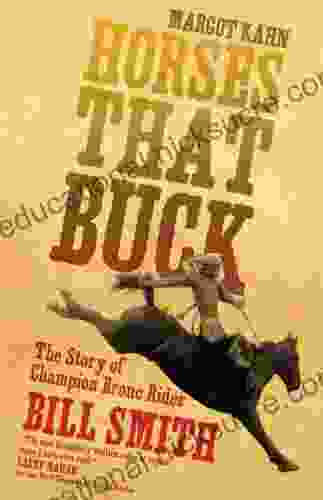
 Craig Blair
Craig BlairThe Story of Champion Bronc Rider Bill Smith: A Legacy of...
In the annals of rodeo...
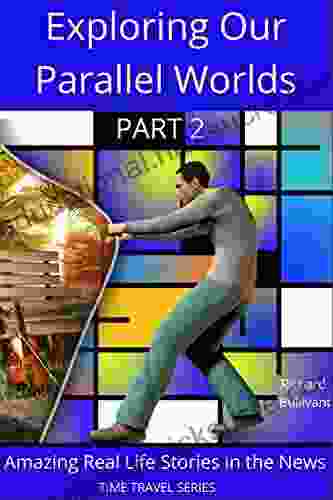
 H.G. Wells
H.G. WellsAmazing Real Life Stories In The News
The news is often...
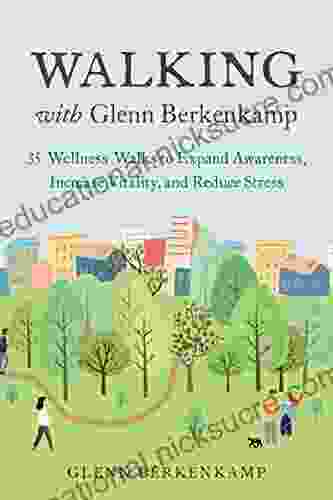
 Jordan Blair
Jordan Blair35 Wellness Walks to Expand Awareness, Increase Vitality,...
In an era where technology...
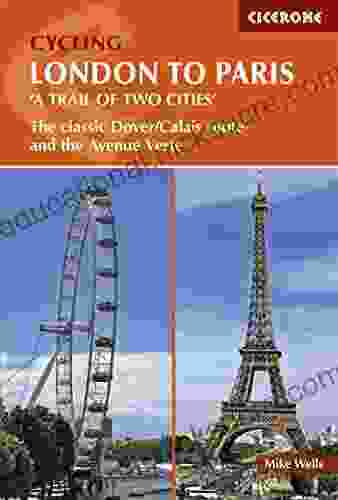
 Edward Reed
Edward ReedCycling London to Paris: An Epic Adventure in the Making
Are you ready for the...
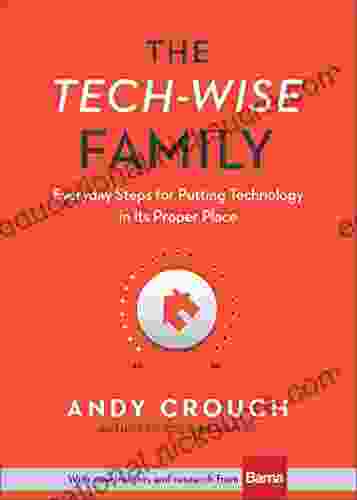
 Edgar Hayes
Edgar HayesEveryday Steps For Putting Technology In Its Proper Place
Are you constantly...
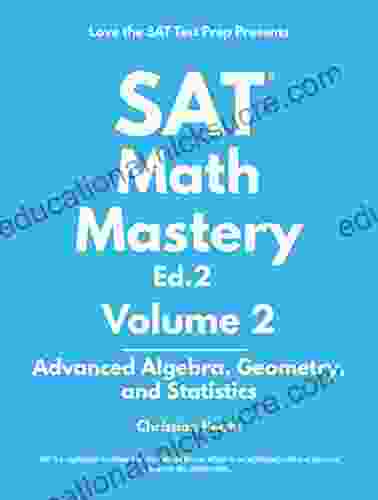
 Mitch Foster
Mitch FosterSat Math Mastery Advanced Algebra Geometry And Statistics
SAT Math Mastery Advanced Algebra Geometry...
4 out of 5
| Language | : | English |
| File size | : | 575 KB |
| Text-to-Speech | : | Enabled |
| Screen Reader | : | Supported |
| Enhanced typesetting | : | Enabled |
| Word Wise | : | Enabled |
| Print length | : | 177 pages |








